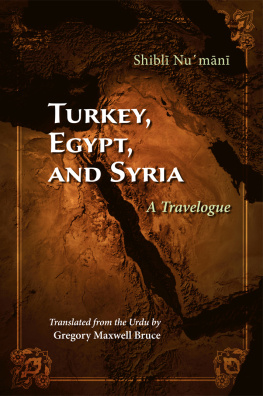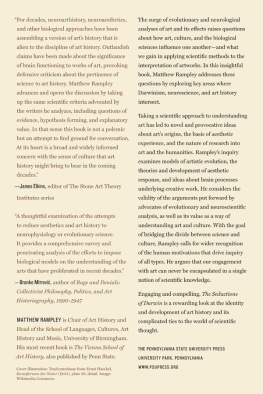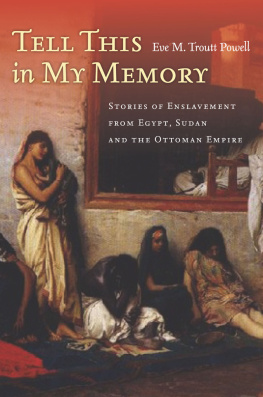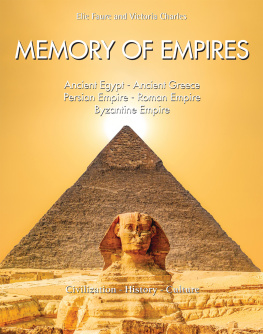Tageldin - Disarming words: empire and the seductions of translation in Egypt
Here you can read online Tageldin - Disarming words: empire and the seductions of translation in Egypt full text of the book (entire story) in english for free. Download pdf and epub, get meaning, cover and reviews about this ebook. year: 2012, publisher: University of California Press, genre: Romance novel. Description of the work, (preface) as well as reviews are available. Best literature library LitArk.com created for fans of good reading and offers a wide selection of genres:
Romance novel
Science fiction
Adventure
Detective
Science
History
Home and family
Prose
Art
Politics
Computer
Non-fiction
Religion
Business
Children
Humor
Choose a favorite category and find really read worthwhile books. Enjoy immersion in the world of imagination, feel the emotions of the characters or learn something new for yourself, make an fascinating discovery.

- Book:Disarming words: empire and the seductions of translation in Egypt
- Author:
- Publisher:University of California Press
- Genre:
- Year:2012
- Rating:5 / 5
- Favourites:Add to favourites
- Your mark:
- 100
- 1
- 2
- 3
- 4
- 5
Disarming words: empire and the seductions of translation in Egypt: summary, description and annotation
We offer to read an annotation, description, summary or preface (depends on what the author of the book "Disarming words: empire and the seductions of translation in Egypt" wrote himself). If you haven't found the necessary information about the book — write in the comments, we will try to find it.
Tageldin: author's other books
Who wrote Disarming words: empire and the seductions of translation in Egypt? Find out the surname, the name of the author of the book and a list of all author's works by series.
Disarming words: empire and the seductions of translation in Egypt — read online for free the complete book (whole text) full work
Below is the text of the book, divided by pages. System saving the place of the last page read, allows you to conveniently read the book "Disarming words: empire and the seductions of translation in Egypt" online for free, without having to search again every time where you left off. Put a bookmark, and you can go to the page where you finished reading at any time.
Font size:
Interval:
Bookmark:
Disarming Words
FLASHPOINTS
The series solicits books that consider literature beyond strictly national and disciplinary frameworks, distinguished both by their historical grounding and their theoretical and conceptual strength. We seek studies that engage theory without losing touch with history, and work historically without falling into uncritical positivism. FlashPoints will aim for a broad audience within the humanities and the social sciences concerned with moments of cultural emergence and transformation. In a Benjaminian mode, FlashPoints is interested in how literature contributes to forming new constellations of culture and history, and in how such formations function critically and politically in the present. Available online at http://repositories.cdlib.org/ucpress
Series Editors: Ali Behdad (Comparative Literature and English, UCLA); Judith Butler (Rhetoric and Comparative Literature, UC Berkeley), Founding Editor; Edward Dimendberg (Film & Media Studies, UC Irvine), Coordinator; Catherine Gallagher (English, UC Berkeley), Founding Editor; Jody Greene (Literature, UC Santa Cruz); Susan Gillman (Literature, UC Santa Cruz); Richard Terdiman (Literature, UC Santa Cruz)
1. On Pain of Speech: Fantasies of the First Order and the Literary Rant, by Dina Al-Kassim
2. Moses and Multiculturalism, by Barbara Johnson, with a
foreword by Barbara Rietveld
3. The Cosmic Time of Empire: Modern Britain and World Literature, by Adam Barrows
4. Poetry in Pieces: Csar Vallejo and Lyric Modernity, by Michelle Clayton
5. Disarming Words: Empire and the Seductions of Translation in Egypt, by Shaden M. Tageldin
Empire and the Seductions of Translation
in Egypt
Shaden M. Tageldin


THIS BOOK IS MADE POSSIBLE BY A COLLABORATIVE GRANT
FROM THE ANDREW W. MELLON FOUNDATION.
University of California Press, one of the most distinguished university presses in the United States, enriches lives around the world by advancing scholarship in the humanities, social sciences, and natural sciences. Its activities are supported by the UC Press Foundation and by philanthropic contributions from individuals and institutions. For more information, visit www.ucpress.edu .
University of California Press
Berkeley and Los Angeles, California
University of California Press, Ltd.
London, England
2011 by The Regents of the University of California
Library of Congress Cataloging-in-Publication Data
Tageldin, Shaden M.
Disarming words: empire and the seductions of translation in Egypt / Shaden M. Tageldin.
p. cm.(FlashPoints; 5)
ISBN 978-0-520-26552-3 (pbk.: alk. paper)
1. Translating and interpretingEgyptHistory19th century. 2. Translating and interpretingEgyptHistory20th century. 3. PostcolonialismEgypt. 4. Comparative literatureArabic and English. 5. Comparative literatureArabic and French. 6. Language and languages in literature. I. Title.
P306.T265 2011
418.02dc22
2011005499
Manufactured in the United States of America
20 19 18 17 16 15 14 13 12 11
10 9 8 7 6 5 4 3 2 1
The paper used in this publication meets the minimum requirements of ANSI/NISO Z39.48-1992 (R 1997) (Permanence of Paper).
for my parents
and for all who struggle, in word and in deed,
with imperialism and its wake
Overture | Cultural Imperialism Revisited:
Translation, Seduction, Power
This book is a translation of many minds, times, spaces, and voices. In writing it, I have incurred untold debts.
Several grants made completion of this book possible. A postdoctoral fellowship from the Europe in the Middle Eastthe Middle East in Europe (EUME) program, cosponsored by the Berlin-Brandenburgische Akademie der Wissenschaften (BBAW), the Fritz-Thyssen Stiftung, and the Wissenschaftskolleg zu Berlin, sent me to Berlin in 2007. My work profited from lively exchanges with Georges Khalil, Samah Selim, Nora Lafi, Amnon Raz-Krakotzkin, and my fellowship cohort: Eli Bar-Chen, Z. zlem Biner, Magdi Guirguis, Erol Krolu, Raja Rhouni, Dana Sajdi, Oded Schechter, Mohamad Nur Kholis Setiawan, Muhammad Reza Vasfi, and Zafer Yenal. Many thanks to Georges Khalil and Christine Hofmann of EUME for their hospitality and support and to the Zentrum fr Literatur- und Kulturforschung in Berlin for hosting me as a guest researcher. Equally important was a Residential Fellowship from the Institute for Advanced Study (IAS) at the University of Minnesota. I thank Ann Waltner, Angie Hoffman-Walter, Karen Kinoshita, Susannah Smith, and my fellowship cohort, to whom I owe much intellectual stimulation. A 2006 Summer Stipend from the National Endowment for the Humanities (NEH), matched by the University of Minnesota Graduate School, supported research in Egypt and France. (Any views, findings, conclusions, or recommendations expressed in this book do not necessarily reflect those of the NEH.) Other grants from the University of Minnesotaa College of Liberal Arts Single-Semester Leave, a Faculty Summer Research Fellowship and McKnight Summer Research Fellowship in the Arts and Humanities, a Grant-in-Aid for Research, and an Imagine Fund Faculty Research Awardfunded work at home and overseas, research assistance, and fees for reproduction of the illustrations in this book, as well as permission to reprint them.
I thank the gracious staffs of the many libraries and archives that supported my research: in Egypt, the Egyptian National Library and Archives (Dr al-Kutub wa al-Wathiq al-Qawmiyya), the American University in Cairo Library, the Cairo University Central Library, and the Bibliotheca Alexandrina; in France, the Bibliothque Nationale de France and the Centre des Archives dOutre-Mer; in the United Kingdom, the British Library and the British National Archives; and in the United States, Doe Library at the University of California, Berkeley, and Wilson Library and the Digital Collections Unit of Andersen Library at the University of Minnesota. Sincere thanks also to the Binational Fulbright Commission in Cairo and the U.S.-U.K. Fulbright Commission in London, which welcomed me to their cities in 20023 and helped launch my research.
Words alone cannot thank the many whose generosity with time and ideas inform this book. This project began at the University of California, Berkeley, where I earned my Ph.D. Thanks to Lydia Liu, I learned to read empire translingually and to rethink translation as a philosophical and political problem, and thanks to Muhammad Siddiq, I learned to read modern Arabic literature in its aesthetic richness and political complexity, tracing its links to the past and to other world literary traditions. Karl Britto introduced me to francophone literature across three continents and encouraged me to take a comparative approach to colonialism and postcoloniality. Catherine Gallagher taught me to read Victorian texts with an eye for context and the counterintuitive. And to Abdul JanMohamed, I owe the insight that recognition can disarm resistance. To these mentors, I extend abiding gratitude.
At the University of Minnesota, I have enjoyed the support of two department chairs, John Archer and John Mowitt, and of my other colleagues in the Department of Cultural Studies and Comparative Literature: Hisham Bizri, Timothy Brennan, Robin Brown, Cesare Casarino, Keya Ganguly, Richard Leppert, Thomas Pepper, Harvey Sarles, Jochen Schulte-Sasse, and Gary Thomas. Their commitment to progressive scholarship, pedagogy, and politics has inspired me to rethink my arguments in profound ways, and I am most grateful. To my students, whose insights always teach me, I owe further pleasures of intellectual community. Warmest thanks also to the dedicated staff of our department, past and present.
Next pageFont size:
Interval:
Bookmark:
Similar books «Disarming words: empire and the seductions of translation in Egypt»
Look at similar books to Disarming words: empire and the seductions of translation in Egypt. We have selected literature similar in name and meaning in the hope of providing readers with more options to find new, interesting, not yet read works.
Discussion, reviews of the book Disarming words: empire and the seductions of translation in Egypt and just readers' own opinions. Leave your comments, write what you think about the work, its meaning or the main characters. Specify what exactly you liked and what you didn't like, and why you think so.







